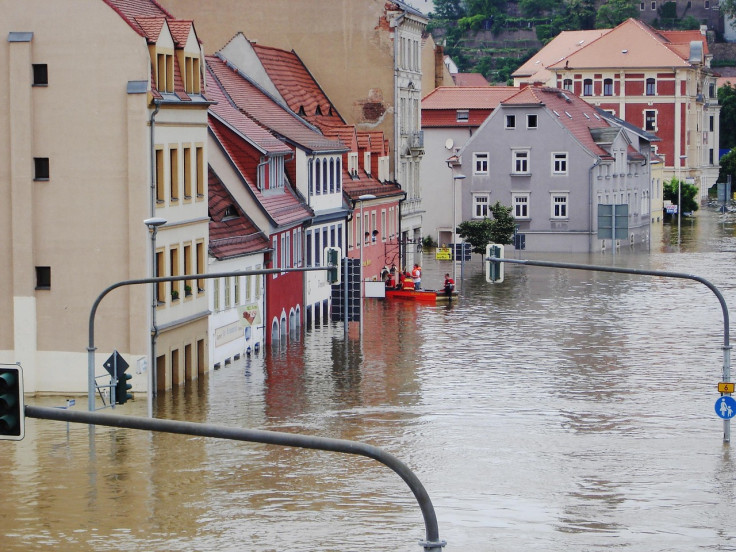Winter's Aftermath: How Businesses Can Recover from Heating Failures and Flood Damage
Businesses must be proactive by implementing recovery plans to minimise the effects of fluctuating temperatures

As winter starts fading in February, we experience more temperature fluctuations. Unfortunately, businesses have to deal with the lingering effects of these changes, from unexpected heating system failures to melting snow, and water damage caused by heavy rainfall and flooding. These problems can disrupt business operations, causing costly downtime, unwanted repairs, potential revenue loss, and safety concerns.
To avert these issues, businesses must be proactive by implementing effective recovery plans to minimise the effects of fluctuating temperatures. This post will explain how companies can recover from heating failures and flood damage.
Post-winter Challenges on Businesses
Commercial properties and workspaces often face various effects of extreme cold and wet conditions. These challenges include:
Roof leaks
Snow accumulation and ice dams are major causes of roof leaks. While the leaks usually start small, they become bigger problems over time and may prevent your employees from working in the affected areas.
Property damage
Extreme cold conditions can freeze and expand water pipes, forcing them to burst. Apart from affecting operations, burst pipes can damage furniture, floors, ceilings, walls, and other essential items inside your commercial building.
Equipment malfunctions
Equipment exposure to cold temperatures over a long period can cause equipment malfunctions. Besides, outdoor machines' batteries, oils, and fuels may not work effectively during winter, increasing the risk of equipment malfunctions.
Heating system failures
You might be wondering why your heating system usually fails as winter starts going away. Your industrial heaters and boilers tend to operate more during the cold months than in other seasons. In addition, fluctuating temperatures make the heating systems work harder to adjust to suit your needs. These factors cause additional stress on different boilers and heating system components. Therefore, they experience more wear and tear, leading to failures.
Health hazards
As your premises face these challenges, your employees, customers, and others are at risk of health hazards such as falls, slips, and electric shocks.
The Continuous Flooding Threats in February
While handling the post-winter challenges above, businesses must be aware of the ongoing flooding threats in February. Rising temperatures usually melt accumulated ice and snow. Besides, the month often experiences heavy rainfall, resulting in flooding.
Although all businesses can be affected by flooding, retail businesses, construction sites, and healthcare facilities are the most significant casualties. Some companies may only have to deal with costly immediate repairs of properties and equipment. Unlucky ones may have bigger issues such as reputation damage and short or long-term closures.
Considering the vast impacts of ongoing flooding on operations, every business must take steps to mitigate these problems.
Implementing Effective Strategies for Quick Recovery
Your business may encounter downtime and revenue loss when dealing with failed heating systems or continuous flooding. So, how do you minimise the lingering effects of these problems? Consider the tips below:
Hire heating equipment for immediate restoration
While repairing or replacing your failed heating systems is a permanent fix for the problem, it can be time-consuming. Therefore, take advantage of rental solutions by considering temporary boiler hire. Experts can quickly set up the boilers in your property, allowing work to restart immediately. Rental boilers come in numerous capacities and sizes, ensuring you can find something that fits your business needs. Besides, they are affordable and practical solutions that help you comply with environmental standards and workplace safety.
Rent water pumps
If your business property is flooded, it is susceptible to various issues affecting your work and well-being. One proven way to solve flooding is to hire a water pump. A water pump removes excess water from the lower levels or basement of your building. By helping you manage the effect of flooding on the property, a water pump prevents operational disruptions and health problems.
Preparing for the Future with a Contingency Plan
As you address the existing problems, you should also be proactive in preparing for future challenges your business may face. A contingency plan can significantly impact how your business mitigates operational disruptions and property damage when experiencing heating system failures and flooding.
Here are some proven ways to plan:
Risk assessment
Get started by identifying potential causes of heating system failures and areas prone to flooding risk around your premises. Regular inspections should also be carried out to determine the conditions of your boilers, pipes, and drainage systems. Repair and replace any defective components as quickly as possible.
Emergency heating solutions
Have an ongoing arrangement with a supplier for quick access to temporary boilers and industrial heaters. This plan guarantees immediate equipment deployment when your heating system is faulty. Training your staff on using the emergency heating systems can also be helpful.
Flood prevention and water management
Establish a protocol for preventing floods and managing water problems in your commercial building. Install flood barriers strategically to avoid waterlogged premises during the wet seasons. Create an effective procedure for shutting off the water supply when water leaks or pipes burst. Your property may also benefit from the installation of water pumps.
Employee safety for business continuity
Employee safety should never be overlooked when creating a contingency plan. Have an emergency response team with adequate knowledge of how to respond during emergencies. Develop a communication protocol informing employees and customers of heating or flooding emergencies. A backup communication system is also essential if the primary option fails.
Your workplace may be unusable for some periods, so consider having an alternative facility for business continuity. This could mean leasing a temporary workplace while you restore the permanent one.
Conclusion
Don't allow heating system failures and flooding to jeopardise employee safety and wreck your business. Set up a protocol to hire industrial heaters, boilers, and water pumps as quick fixes for the problems. Similarly, develop a contingency plan to make sure your business thrives during the unavoidable fluctuating temperatures.
© Copyright IBTimes 2025. All rights reserved.





















